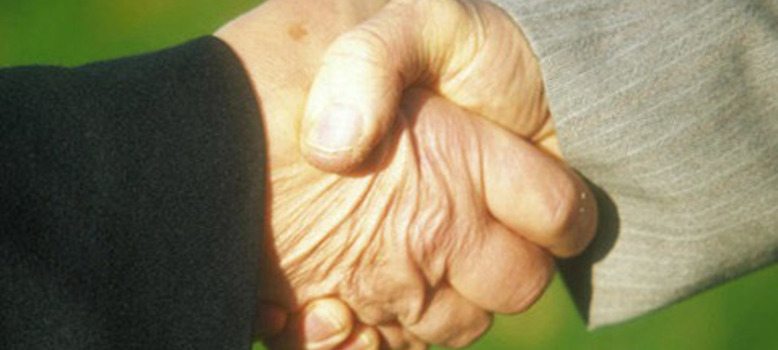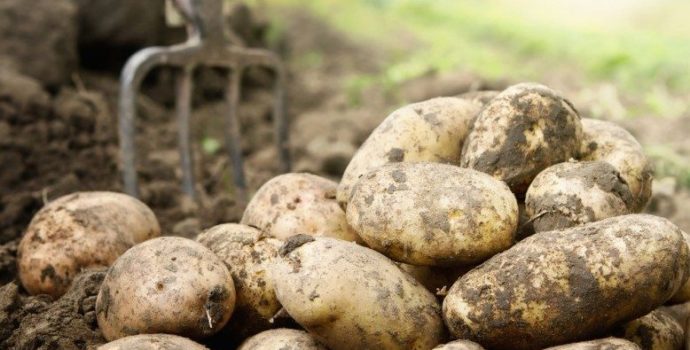A Fair Deal for Farm Families

Get a rundown of the Fair Deal Scheme and IFA’s campaign for a cap on the charge on farm assets under the Scheme
For many older people, planning to live in a nursing home can be difficult to think about but planning ahead for possible nursing home care is hugely important, particularly if you have a farm business. Planning can help to avoid the worry that the viability of the family farm will be undermined or lost in meeting the cost of care.
Being informed about the options available and the implications is the first step. Where an individual requires nursing home care, there are two options: either the individual pays entirely from their own resources for their care, or they can apply to the State through the Nursing Home Support Scheme, generally known as the Fair Deal Scheme, for support towards the cost of meeting their nursing home care needs.
Paying for nursing home care from personal savings can be prohibitively expensive. The average cost of nursing home care is approximately €900 per week and the overall average length of stay is 2.9 years so this would require an individual to have personal savings of approximately €136,000.
The Fair Deal scheme provides great assistance and professional care for many older people. However, the treatment of productive income generating assets, such as the family farm, has potentially serious ramifications for the viability of some farms. IFA has been campaigning since 2012 for the introduction of a cap on the maximum charge that can be applied to income generating assets, such as farm assets, to allow farm families to make the most appropriate decisions in meeting the cost of care.
How does the Fair Deal Scheme work?
The Fair Deal Scheme essentially works out what an individual can afford to pay from their own income and assets, and the State pays the remaining balance. Nobody will pay more than the cost of actual cost of care. A key feature of the scheme is the optional Nursing Home Loan, which facilitates the deferral of payment to be collected from the person’s estate after their death.
An individual contributes up to 80% of their assessable income and a maximum of 7.5% of the value of any assets per annum towards the cost of care. The first €36,000 of an individual’s assets, or €72,000 for a couple, is not taken into account during the financial assessment and the principal private residence will only be included in the financial assessment for the first three years.
The value of the farm assets is also taken into account in the financial assessment – there is a 7.5% contribution on the farm asset per annum for the duration of an individual’s stay in the nursing home. The three year cap that applies on the principal residence is applied to farm assets only in certain circumstances, where a farmer has been involved in the daily management of the farm but suffers a sudden illness or disability that requires nursing home care and a family successor certifies that he or she will continue the management of the farm to qualify.
Charge on transferred farm assets
The charge on transferred farm assets causes farm families the greatest concern. If a farm asset was transferred within the five years before entering the scheme it is included in the financial assessment.
The fact that a successor can be held liable for nursing home costs if the asset was transferred within the last five years is causing real difficulties. Farm assets are productive assets that are required to generate income; they are not a measure of ability to pay. It is unworkable for the successor as he or she will be limited on the investments that he can put into the farm due to the potentially high liability that remains on the asset. There are real concerns that the viability of some farm businesses may be undermined or lost while trying to meet the cost of care.
Example of the cost impact
The potential effect of the Fair Deal on farm assets is shown in the following example of an average single suckler farmer.
According to the National Farm Survey, the average suckler farm size is 33.4 hectares with an asset value of €611,260. If we assume that the farm house is valued at €120,000, this gives a total asset value is €731,260. As the first €36,000 is disregarded, the farmer’s contribution to care will be based on the asset value of €695,260.
Average farm income is approximately €10,369 per annum and if the farmer qualifies for a full personal rate Contributory State pension this is worth €11,976 per annum – totalling €22,345. Therefore the farmer’s co-payment based on 80% of the assessable income is €17,876.
In this scenario, taking the average nursing home care cost of €46,592 per annum there would be a potential annual liability on the farm asset of €28,716 per annum when you deduct farm income co-payment of €17,876. The liability on the assets would be for the duration of the farmer’s stay in the nursing home.
IFA campaign
IFA is campaigning for the introduction of a cap on the maximum charge that can be applied to income generating assets, such as farm assets. Given that the average stay in a nursing home is 2.9 years, a cap would have limited impact on the revenue collected by the State, however, it would make a significant difference to farm families and allow them to make the most appropriate decisions in meeting the cost of care.
In addition, IFA believes clearer guidelines are needed on the definition of “sudden illness or disability”, as well as the treatment of assets that have been transferred prior to going into the nursing home.
The Review of the Nursing Home Support Scheme, A Fair Deal published in July 2015 recognised the IFA’s position and stated that “consideration … be given to the application of asset-based contribution to family farms and other family businesses where the relevant assets generates the household’s income, and where the asset would in the normal course pass on to the next generation as a primary income source.”
An Interdepartmental/Agency Working Group has been established to progress many of the recommendations contained in the review and is expected to report to the Cabinet Committee on Health in June 2016. IFA has written to the Group requesting an opportunity to make a presentation, which is currently being considered.
You can keep up with the progress of the IFA campaign and get more information on the Fair Deal Scheme at ifalegacystagi.wpengine.com.




